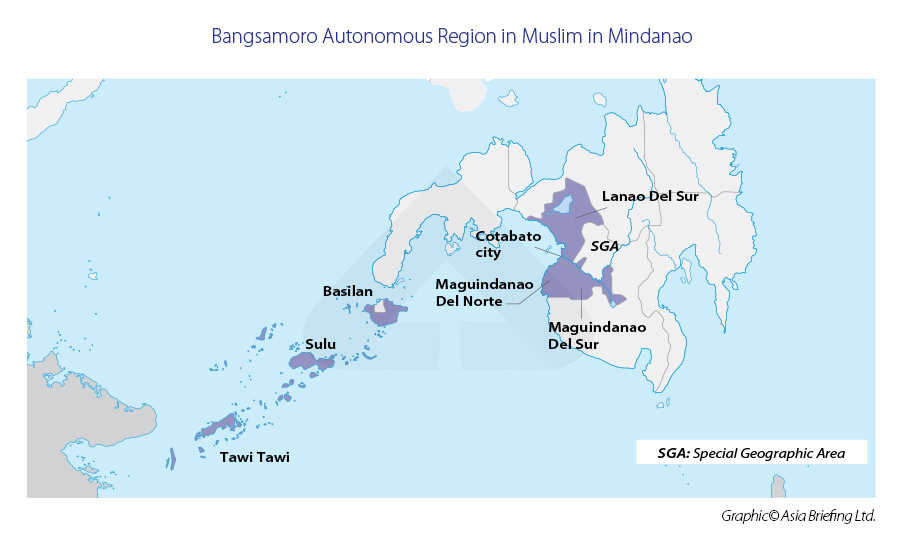Untapped Economic Potential of the Muslim-Autonomous Region in the Philippines
The Bangsamoro Autonomous Region in Muslim Mindanao (BARMM) is an autonomous region in the southern Philippines formed in 2019. It comprises the provinces of Basilan, Lanao del Sur, Maguindanao del Norte, Maguindanao del Sur, Sulu, and Tawi-Tawi. After decades of war, the BARMM offers a hopeful and peaceful future for this majority-Muslim region. Only eight percent of the Philippines’ total population are Muslims.
Like many conflicts in the region, the conflict in Mindanao is a mix of unresolved issues that stretches back to colonial times coupled with the appeal for an independent Muslim state in the modern era of the Philippines. The decades of war between the government and Muslim rebels left the BARMM (which was previously the Autonomous Region in Muslim Mindanao (ARMM)) as one of the poorest regions in the country – with a high poverty rate, high levels of infant and maternal mortality, and among the lowest life expectancies.Further, the Sulu archipelago is a crossroad for the illegal trafficking of persons, weapons, narcotics, and militancy.
After some two dozen years of talks, a plebiscite to ratify the Bangsamoro Organic Law (BOL) was held in 2019, which became the backbone for the abolishment of the ARMM and the establishment of the BARMM. A transitional body, the Bangsamoro Transition Authority (BTA) was established pending elections for the new region’s government, which is expected to take place in 2025.
Moreover, Indonesia, Malaysia, and the Philippines signed a Trilateral Cooperation Agreement (TCA) in 2016, which aims for coordinated patrols in the Sulu and the Celebes Sea and airspace, including coastguard collaboration.
As such, the BARMM has untapped economic potential, especially through increasing maritime trade with neighbors Indonesia and Malaysia through which the BARMM coastline borders in addition to sharing their Malay-inspired cultures.
Economic growth in the BARMM region: High potential but investments will take time
The fragility of the BARMM still hinders investments and the possibility of strengthening economic linkages with neighbors like Indonesia, Malaysia, and Brunei. Although violence has receded compared to decades ago, there are still varying levels of civil unrest in the region. As such, the investment climate will likely take time to stabilize (the region only saw PHP 2.8 billion (US$48.6 million) in investments in 2021) and will be contingent on the future of BARMM’s security environment.
BARMM did see its economy grow by 7.5 percent in 2021, emerging as the second-fastest growing region among the 17 regions in the Philippines. The top industries that recorded the most growth were:
- Health and social work (22 percent);
- Mining and quarrying (20 percent);
- Accommodation and food services (17.9 percent);
- Construction (12.2 percent); and
- Financial and insurance activities (10.6 percent).
The government’s innovative approaches to facilitate more sub-regional trade, such as improving connectivity between the islands and the establishment of barter ports will benefit the BARMM. Barter trade had been banned by the government as officials believed it would increase the illicit trade of goods and people. The Sultanate of Sulu and the Sultanate of Maguindanao had barter trading partners with businesses in Borneo and China when their maritime economies were booming.
Halal industry potential in the Philippines
BARMM has the potential to be a Halal hub in the Philippines given it has the largest concentration of Muslims in the country and its strategic location in the southern part of the Philippines, close to the large Muslim market of Indonesia and Malaysia, the latter of which already has a well-developed Halal industry supply chain.
The Philippine Economic Zone Authority is aiming to develop a special economic zone in Mindanao that targets Halal food producers and investors and will boost the country’s share of the global Halal industry, estimated to be worth US$3 trillion. The country saw over US$500 million of Halal food exports in 2018.
Further, the Department of Trade and Industry is encouraging more small and medium-sized businesses to explore the global Halal market. In 2016, the government issued the Halal Export Development and Promotion Act of 2016 as a guide for companies looking to produce and promote their Halal goods. Through the Act, the government has provided training modules that have benefited more than 400 MSMEs and helped develop more than 10 Halal certifying bodies.Improving connectivity in BARMM can boost trade
After five decades of fighting, BARMM is slowly seeing important investments in its infrastructure. In June 2022, Philippines Airlines became the first airline to operate regular flights within the BARMM through a direct flight between Cotabato City in Maguindanao province and Bongao in Tawi-Tawi province. Previously, travelers had to first travel to Manila or an airport outside of BARMM, which often entailed an overnight stop. The waters surrounding Tawi-Tawi are rich in marine diversity and improving connectivity can unlock its tourism potential.
About Us
ASEAN Briefing is produced by Dezan Shira & Associates. The firm assists foreign investors throughout Asia and maintains offices throughout ASEAN, including in Singapore, Hanoi, Ho Chi Minh City, and Da Nang in Vietnam, Munich, and Esen in Germany, Boston, and Salt Lake City in the United States, Milan, Conegliano, and Udine in Italy, in addition to Jakarta, and Batam in Indonesia. We also have partner firms in Malaysia, Bangladesh, the Philippines, and Thailand as well as our practices in China and India. Please contact us at asia@dezshira.com or visit our website at www.dezshira.com.










